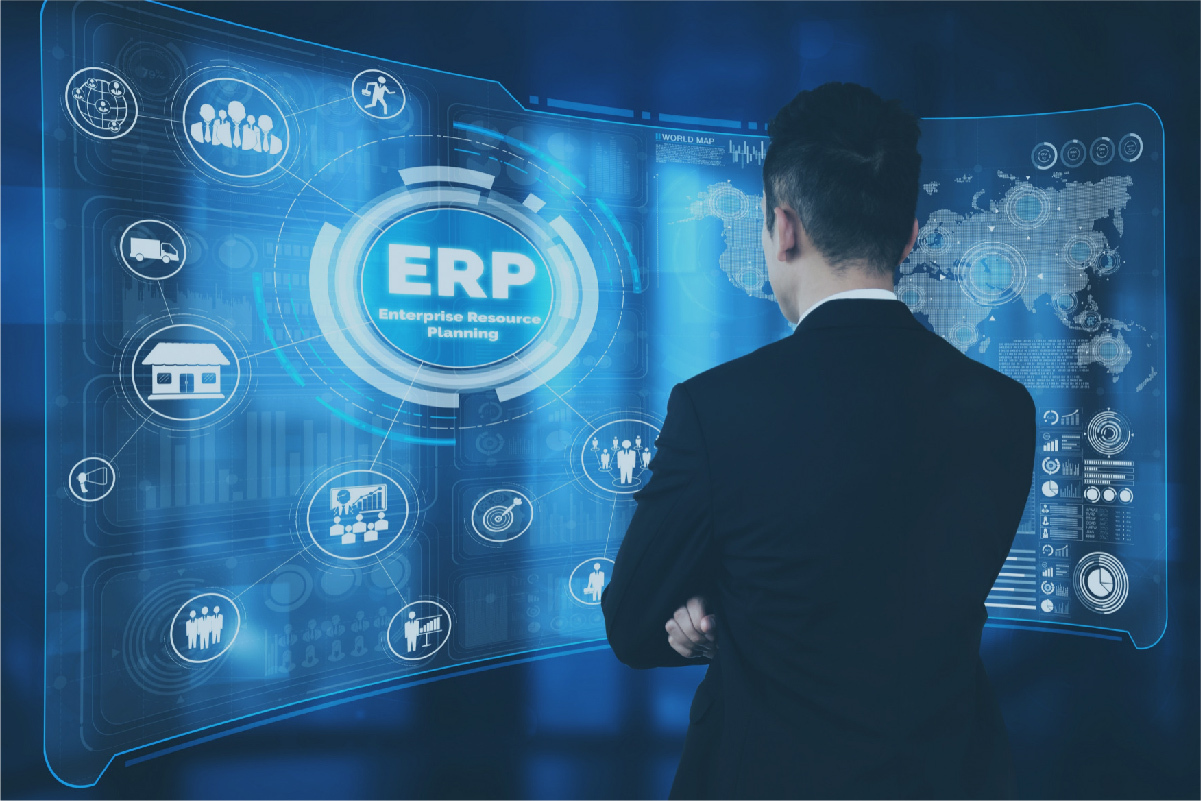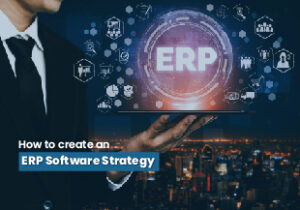If you’ve been running your business on spreadsheets, WhatsApp messages, and disconnected apps, you know the struggle. At some point, everything starts falling through the cracks—missed orders, stockouts, delayed payments, and zero visibility.
That’s usually the moment business owners start exploring something better. The big debate? Whether to go for a ready-made ERP Software or invest in custom business solutions built from scratch. Let’s help you answer that with clarity.
What is ERP Software, and Why Is Everyone Talking About It?
ERP Software (Enterprise Resource Planning) is a system that ties all your key business processes—accounts, sales, inventory, HR, procurement—into one platform. Instead of managing data across multiple tools, everything lives in one place.
You get real time data, clear reporting, and the ability to run your operations more efficiently. And with cloud based ERP systems like Oracle ERP Cloud, you don’t need heavy IT infrastructure to get started.
Whether you’re a manufacturer tracking raw material or a trader managing multiple warehouses, ERP software brings all your business functions under one roof.
What Are Custom Business Solutions?
Custom business solutions are built to your exact specifications. Need a tool that generates invoices in a certain format or tracks orders based on textile batches? A developer can build it for you.
These systems are personalized, no doubt. But they come with a trade-off: higher costs, longer timelines, and more ongoing maintenance.
For businesses with unique operations—say, a sugar mill in Punjab or a ceramic factory in Multan—custom solutions can work well. But they don’t always scale easily.
Head-to-Head Feature Comparison
Setup and Implementation
- ERP Software: Ready-made ERP solutions are quicker to implement. Many providers in Pakistan offer pre-configured modules that suit local businesses. You could be up and running in a few weeks.
- Custom Solutions: These take months. You’ll be involved in every stage—planning, design, development, testing, and training. If you have the patience and budget, great. But if you want to move fast, it might not be ideal.
Cost and Budget Planning
- ERP Software: Most vendors offer subscription pricing. You pay monthly or yearly based on users or features. This is great for small businesses looking for predictable costs. Many providers also offer ERP for small business in Pakistan with affordable packages.
- Custom Solutions: The cost depends on complexity. Development alone can run into hundreds of thousands of rupees. Then there’s hosting, updates, bug fixes, and developer fees.
Scalability
- ERP Software: Built to scale. As your business grows, you can add new modules—like payroll, CRM, or advanced reporting—without redoing the whole system.
- Custom Solutions: You can scale, but it’s expensive. You’ll need your developers to rework the code every time your needs change.
Flexibility
- ERP Software: Comes with standard features. Some allow customizations, but you’re still working within a framework. That said, many ERP systems are highly configurable.
- Custom Solutions: Maximum flexibility. You define how it looks, feels, and works. But that also means longer testing cycles and higher risk of bugs.
Maintenance and Support
- ERP Software: Most vendors provide full support, updates, and backups. Cloud based ERP systems also come with data security and disaster recovery.
- Custom Solutions: You’re on your own (or dependent on your developer). If your IT guy quits, you might be in trouble.

Which Works Better for Small Businesses in Pakistan?
In recent years, the demand for ERP Software in Pakistan has surged. Why? Because small and medium-sized businesses now realize they need more than just accounts software to grow.
Whether you’re handling dozens of purchase orders, managing raw material for production, or reconciling payments, ERP gives you structure. You get:
- Real time insights into inventory and sales
- Streamlined business operations
- Integration between accounts, inventory, and procurement
- Better decision-making using data driven dashboards
Plus, many local ERP vendors understand the Pakistani business environment. That means easier implementation, Urdu interfaces, and support tailored to industries like retail, textile, ceramics, and trading.
On the other hand, ERP for traders in Pakistan helps manage complex supply chains, multiple vendors, and warehouse operations—all from one dashboard. That’s not something you can easily build from scratch.
Long-Term Impact on Business Growth
When we talk about scaling, we’re not just referring to growing revenue. Scaling means your systems can handle more volume without breaking down.
ERP Software supports that:
- More employees? Just add users.
- Expanding to a new city? Clone your settings and start.
- Adding new product lines? Just activate a module.
Custom software, unless designed from day one with growth in mind, can struggle with scale. You might face performance issues, security gaps, and rising costs.
Over the long term, ERP Software offers a more sustainable, affordable, and growth-friendly path.
Industry Use Cases
Manufacturing and Production
Manufacturers juggling raw materials, assembly lines, and shipments benefit immensely from ERP. The system tracks everything—from supplier orders to final delivery.
Trading and Wholesale
For traders, keeping tabs on inventory, multiple vendors, and payments is critical. ERP for traders in Pakistan offers a unified view of business health and enables fast decisions.
Retail and Ecommerce
With features like POS integration, inventory alerts, and customer relationship tools, ERP makes retail management smoother.
Service-Based Businesses
Consulting firms, real estate agencies, and other service businesses use ERP to manage tasks, billing, HR, and client communication.
Final Thoughts
We get it—technology decisions are tough. But here’s the simple truth:
If you’re serious about growth, ERP Software is your best bet.
It’s faster to implement, easier to manage, and more aligned with long-term business goals. While custom software has its place, it’s better suited for large enterprises with highly unique operations and big IT budgets.
For most small businesses and traders in Pakistan, an ERP system provides a perfect balance of power, affordability, and future readiness.
How Prismatic Can Help
Building the Right ERP for Your Business
At Prismatic, we don’t just sell ERP—we partner with you to understand your operations and challenges. Our ERP Software is designed with Pakistani businesses in mind, offering modules for:
- Accounting and finance
- Inventory and procurement
- HR and payroll
- Customer service and CRM
With cloud based ERP, you’re always connected. With local support, you’re never alone.
Ready to grow smarter? Let’s talk.
“Built for today. Ready for tomorrow. ERP Software that grows
with your business.”
FAQs
- Is ERP Software suitable for startups?
Yes! Many ERP systems have lightweight versions perfect for startups and small businesses.
- How much does ERP cost in Pakistan?
It varies, but many providers now offer budget-friendly ERP for small business in Pakistan with monthly payment plans.
- Can ERP help me track inventory and orders?
Absolutely. ERP systems manage inventory, track purchase orders, and notify you when stock runs low.
- Is ERP better than traditional accounts software?
Yes, ERP includes accounting and much more—like inventory, sales, and HR in one system.
- Can ERP be customized for my business needs?
Most modern ERP solutions allow configuration. You get flexibility without starting from scratch.
- What if I already have software in place?
ERP can often integrate with existing tools or replace them entirely, depending on your goals.

